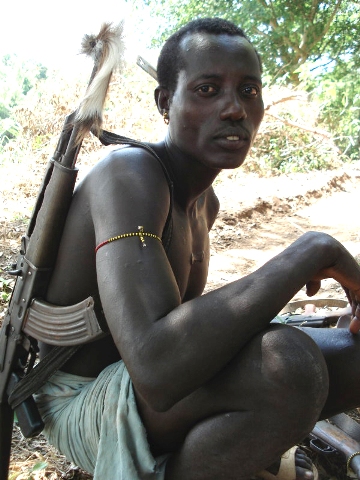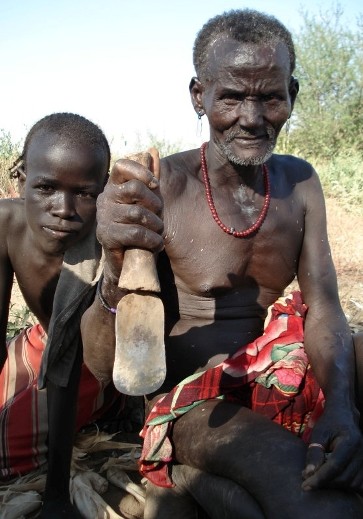|
Ethiopia Culture - Arts | Economy - Development | Human rights Ethiopia dam to "devastate entire tribes"
According to the UK-based human rights group Survival, the giant Gibe III dam now being built on the Omo River in south-western Ethiopia will have a "devastating" effect on an estimated "200,000 tribal people" in the country. In addition to the 150 kilometres long reservoir flooding their lands, environmental degradation will destroy their livelihood, the group holds.
Most of the local peoples who will be affected by the dam know little about the project. The Ethiopian government is said to be "clamping down on tribal organisations," and last year closed down 41 local 'community associations', making it impossible for communities to hold meetings about the dam. Environmental damage could, activists fear, be far ranging. The Omo River is the primary source of Kenya's famous Lake Turkana, which supports the lives of 300,000 people who pasture their cattle on its banks and fish there. "The dam will threaten their survival too," Survival fears. Both the Lower Omo Valley and Lake Turkana are UNESCO World Heritage sites. Survival thus today started an international campaign to stop the building of the Gibe III dam, and urging the African Development Bank and other financing institutions to stop funding the project. Stephen Corry of the group today said the dam "will be a disaster of cataclysmic proportions for the tribes of the Omo valley. Their land and livelihoods will be destroyed." He added that "no respectable outside body should be funding this atrocious project." But the call may come late. The euro 1.4 billion (US $1.7 billion) work is a prestigious project for the Ethiopian government and key to its plans to finally increase electrification. The Ethiopian government claims Gibe III, aside from generating enough electricity to power the country several times over, will increase the safety of the downstream peoples by stopping giant floods from sweeping away livestock and people. The mere dimensions of the project indicate it will be hard to stop. Gibe III will be the second largest hydroelectric power plant in Africa, also providing electricity to needing neighbour countries. The dam wall will be 240 metres high - the tallest dam in Africa - and create a 150 kilometres long reservoir lake. And also the timing is late to stop the project. Salini Costruttori, an Italian company, started construction work on the Gibe III dam already in 2006, and by now has built a third of it. The dam is due to be completed in 2012. By staff writer © afrol News - Create an e-mail alert for Ethiopia news - Create an e-mail alert for Culture - Arts news - Create an e-mail alert for Economy - Development news - Create an e-mail alert for Human rights news
On the Afrol News front page now
|
front page
| news
| countries
| archive
| currencies
| news alerts login
| about afrol News
| contact
| advertise
| español
©
afrol News.
Reproducing or buying afrol News' articles.
You can contact us at mail@afrol.com









